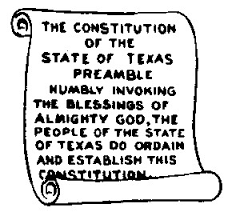Get out your figurative credit card, we’re about to put a big charge on it for our future selves to pay.
Voters will be asked to approve property tax cuts for Texas homeowners and businesses in November.
If voters agree, homeowners will see increased breaks on the taxes they pay toward school districts, with those above the age of 65 or living with disabilities seeing even bigger cuts, if Texas voters approve them in November. Business owners will get help, too, on the taxes they pay on their inventory.
Gov. Greg Abbott, a champion of tax cuts, said Friday he plans to sign the deal, one more procedural step before the fall election. Abbott urged voters to approve the increases.
“Never before has the Texas Legislature allocated more funds to provide property tax relief than they did this session,” Abbott said in a news release.
Texas lawmakers plan to put $51 billion toward cutting property tax cuts — maintaining ones enacted in previous years as well as enacting new ones — over the next two years. That’s a gargantuan figure, state budget analysts and some lawmakers worry will come back to haunt the state. Legislators tapped once-in-a-lifetime multibillion-dollar budget surpluses, the result of inflation and massive influxes of federal stimulus dollars during the COVID-19 pandemic, to pay for tax cuts in recent years.
Those federal dollars are all but spent. Though Texas’ economy is healthy, it has slowed. Uncertainty around the Trump administration’s back-and-forth tariff policies, lower levels of immigration, lower oil prices and federal spending cuts could make matters worse for the state’s economy, the Federal Reserve Bank of Dallas said in May.
The state budget, which lawmakers approve every two years, could take a hit as a result, said Shannon Halbrook, a fiscal policy expert at the left-leaning Every Texan. Tax cuts may not be on the chopping block, but other government services would be.
“I don’t think we’re going to have a lot of extra money lying around next time,” Halbrook said. “The conversation is not going to be, ‘how do we spend all this extra revenue?’ It’s going to be, ‘How do we deal with a really tight environment? What do we cut? How do we go from here?’”
Texans who own their home are slated to see a boost in the state’s homestead exemption, or the slice of a home’s value that can’t be taxed to pay for public schools. Lawmakers raised the exemption from $100,000 to $140,000.
The owner of a typical Texas home — valued at $302,000 last year, according to Zillow — would have saved about $490 on their school property taxes had the higher exemption been in place last year, a Tribune calculation shows. Those savings result from a combination of the increased homestead exemption and $2.6 billion in cuts to school tax rates in the state’s upcoming two-year budget.
That one I’ll vote for, I approve of raising the exemption as it provides more benefit for people on the lower end of the property scale. The rest I’ll vote against, they’re the ones that will really put our future revenue to the test. I have no illusion that my vote will be part of a majority – these will likely pass with more than 70% of the vote – but one does what one must. Good luck, and as many dope slaps as appropriate, to the future legislators who will be left wondering how we got into this predicament.
(Yes, I agree, handling tax rates via Constitution and referendum is dumb. Yes, I agree, our Constitution itself is a ridiculous overstuffed hodgepodge of things that don’t belong in a properly written Constitution. No, it’s never going to be reformed, I’m not going to waste time worrying about it.)

